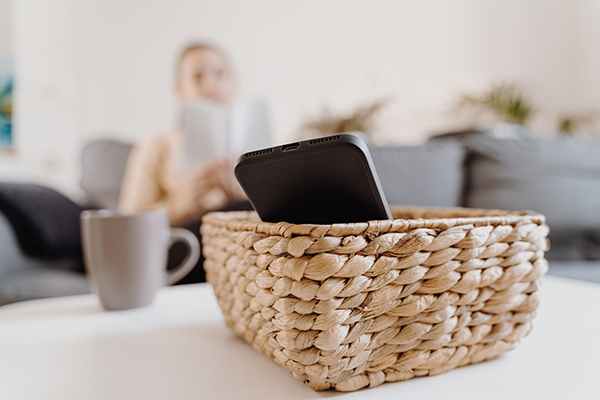Once considered a habit for children, getting hooked to screens is now a global health risk affecting all ages. Learn about its negative impact on physical and mental well-being, relationships, and social skills, and discover practical tips for a healthy digital detox.
Screens are everywhere we look — including where you are reading this article. Digital devices and online spaces have become integral to our existence, embedding themselves into our daily lives as indispensable tools for communication, entertainment, and information. This continuous connectivity and constant exposure to digital stimuli have created a global village, erasing the distances between individuals. . However, what often goes unnoticed are the detrimental effects on our mental and physical health.
What is “too much screen time?”
According to the latest studies, the average screen time for users worldwide aged 16 to 64 is now 6 hours and 35 minutes daily. And these figures don’t even include the time we spend on screens for work or study. The American Academy of Pediatrics recommends these acceptable time limits:
- No screen time for children under 2
- One hour per day for children 2 to 12
- Two hours per day for teens and adults
What are the risks of excessive screen time?
Bad sleep: By displacing more sleep-beneficial activities and exposing us to blue light, too much screen time inhibits melatonin production and disturbs circadian rhythms. Prolonged use, especially at night, can shorten sleep duration and impair daily performance, while notifications and sounds from devices further interrupt sleep cycles. Additionally, research suggests that electromagnetic radiation from screens can mimic light exposure, leading to even poorer sleep quality.
Depression due to social networking: Social media-induced depression is a growing concern, particularly among today’s generation. Dependence on mobile phones and digital gadgets contributes to this risk, as social media often enforces unrealistic expectations and comparisons. The instant gratification from curated feeds keeps users scrolling, creating patterns of jealousy, envy, and self-doubt. This reliance on online validation reduces real-life interactions and the release of feel-good hormones like dopamine and serotonin. Consequently, teenagers heavily using the internet exhibit stronger depressive and hostile symptoms, negative thinking, and lower life satisfaction.
Fear of Missing Out (FOMO)
FOMO has been identified as a significant risk factor for excessive internet use, particularly among teenagers. Continual notifications exacerbate FOMO, creating pressure to stay online constantly. People often feel overwhelmed and guilty if they cannot respond to messages immediately, leading to heightened anxiety when access to messaging is limited.
Obesity & orthopedical problems
Time seems to fly by when video gaming, binge-watching Netflix, or scrolling on your phone, and before you know it, hours have passed with minimal movement. This inactivity is linked to unhealthy diets and weight gain. Additionally, prolonged sitting and poor posture from using small-screen devices can lead to musculoskeletal strain and joint pain.
Impaired vision
Constantly staring at a screen can cause headaches, eye strain, dry eyes, irritation, and impaired vision. These symptoms often stem from glare, poor lighting, or wrong viewing angles.
Screen addiction
The phrase “I can’t live without my cell phone” reflects a growing reality for many. Nomophobia, the fear of being without a mobile device, ranges from mild anxiety to an irrational need to stay connected. Over half of young adults report feeling “addicted” to their phones, with the average user touching their device over 2,600 times a day. Despite ongoing debates about whether this behaviour qualifies as an official addictive disorder, many experts agree that excessive digital access can lead to adverse consequences similar to those caused by substance addictions. Social networks, fostering a need for approval and belonging, and video games, offering an ideal self-image and rewarding progress, are particularly addictive due to their validation through likes, immersive experiences, and constant engagement.
How to digital detox (Without Pulling the Plug Entirely)
The reality is that screen time plays a vital role in our world and daily lives, so for most people, completely abandoning technology isn’t realistic. Instead, the challenge is balancing the benefits and drawbacks. While we cannot avoid responsibilities like work and school, we can choose how to integrate and reduce technology in our free time. Here are some healthy digital detox habits to consider:
- Schedule “no screen” times to avoid screens, such as during meals, one hour before bed, and until the following day .
- Take tech breaks to reduce stress. Use do-not-disturb settings to silence alerts and notifications, and log out of or uninstall social media accounts during your detox.
- Create “no screen” areas, such as the bedroom, to prevent screens from interfering with sleep.
- Move from screen time to active time. Research shows that outdoor exposure helps prevent myopia by stimulating retinal dopamine release. So, go outside for a walk or bike ride, and spend time with friends talking face-to-face instead of messaging.
- Downgrade your phone by replacing your smartphone with a basic cell phone that does not support apps to eliminate distractions.
Furthermore, if technology use interferes with daily functioning or affects your self-esteem, anxiety, or depression, consider talking to a professional for support.
In conclusion …
… regulating screen time is crucial for maintaining and improving mental health stability and recovery. While screens offer benefits like immediate access to information, enhanced psychosocial relationships, increased creativity, and overall well-being for adults, it is essential to balance these advantages with mindful usage.
If you or a close one is struggling with mental health issues due to excessive screen time, please reach out to us today to get mental health help through one of our programmes. At NEOVIVA, we provide treatment for both teens and adults.




0 Comments